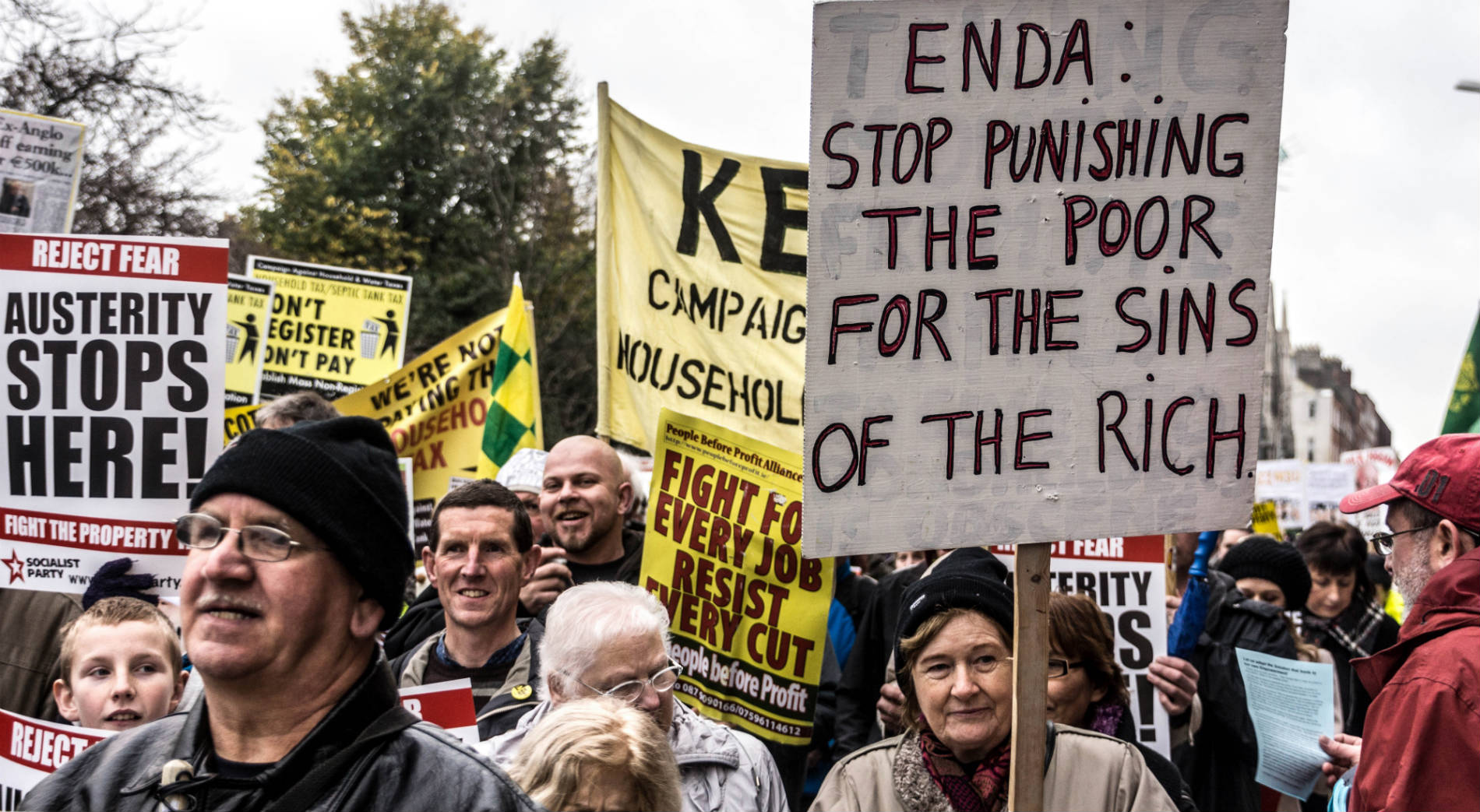There is talk of economic recovery, unemployment has fallen and people are spending more. And yet for many, life still feels hard. A recent Guardian poll found that while 56% agree that the economy is recovering, just 18% believed their family had benefited from growth. People are also worrying about the future. Only 20% think that the economic recovery will mean the next generation will be better off than themselves. Why is Britain so anxious?
It is clear that there is public uncertainty about the long term impact of the current austerity programme and what it means for the shape of our society, the way we work, where we live and how public services are delivered. But at the same time there is little serious debate among politicians and in the mainstream media about serious alternatives.
This week Lacuna continues to challenge the accepted wisdom on austerity with a series of articles offering debate and alternative visions for a prosperous society. Take unemployment. Official statistics suggest unemployment is falling, but what does that actually mean and why is it so important? These are just some of the questions posed by Nick Taylor in his historical essay on how language has shaped the way we think about work and workers. He argues that investigating the language used to categorise people (e.g. deserving and undeserving poor) is a vital step in contesting the stigmatization of the unemployed in modern society.
Human rights advocates will be familiar with the political use of language to shape and distort reality. In an exclusive interview with Lacuna, Professor Alan Miller, chair of the Scottish Human Rights Commission, describes the rhetoric about human rights from the Westminster bubble as ‘toxic’. North of the border, the situation looks very different: human rights are embraced by politicians and play an increasingly important role in shaping responses to austerity and visions of future prosperity.
In the context of the vote on Scottish independence, it feels like competing visions of future prosperity are really being considered and debated. But, James Harrison argues in our series ‘Perspectives on Prosperity’,too often the only question asked about austerity is, are you for or against? With this in mind, Lacuna commissioned a series of articles from groups already thinking about these issues.
Lewis Brown from the Centre for Policy Studies argues that the only way to build sustained prosperity for all is to re-create Margaret Thatcher’s vision of a smaller state and lower taxes. Meanwhile Neal Lawson and Arrun Degenhardt from Compass want government to transform the economy to create a more equal society, using the proceeds of taxes on financial transactions and other reforms to invest in greener, more sustainable growth. The Women’s Budget Group also suggest a complete transformation of the economy – a feminist plan (‘Plan F’) built on social infrastructure spending in areas such as education, health, and care work. Finally, the New Local Government Network presents a vision of what a good society looks like, based on quality of life and the reciprocal strength of local communities.
But what about anxious Britain? How can members of the public engage in meaningful discussion about prosperity and austerity? Lacuna writer Natalie Byrom went along to a People’s Assembly meeting to find out. There she met activists and ordinary people angry about the impact of austerity on their lives and communities. The gripes and fears that initially appear disparate and unfocused, become a powerful, collective force when guided with a soaring speech by author and campaigner Owen Jones. What is his message? Hope.
Photo by William Murphy ![]()
![]()
